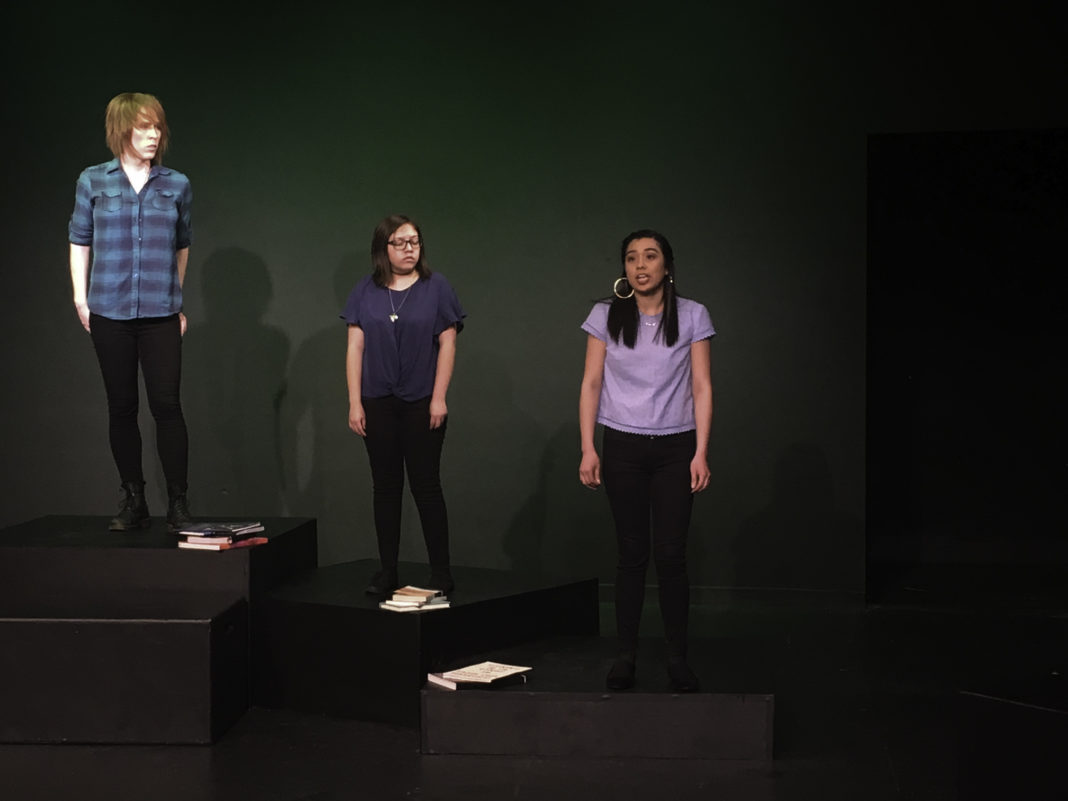Questioning Turkey’s position
Alan Makovsky, a well-known political figure in international affairs, spoke to a room of 150 people on Saturday to discuss the impact that the war on terrorism has had on U.S.-Turkey relations. He also addressed the pressing issue of whether the United States will attack Iraq and how the possibility of an attack affects Turkey.
Birol Yesilada, endowed chair of the contemporary Turkish studies program, introduced Makovsky as a longtime acquaintance, highly regarded by policy makers in Washington, D.C. and Turkey.
Makovsky began his lecture by explaining two reasons for Turkey’s importance. First, he said, “Location, location, location,” referring to the geopolitical value of Turkey. He said, “No other country shares a border with three states that are all on the U.S. list of state sponsors of terrorism, those being Iraq, Iran and Syria.”
Additionally, he explained that there is an increased interest in developing an oil pipeline by way of the Caspian Sea, which would ease Western dependence on the Persian Gulf.
A second reason for the importance of Turkey is that it has committed itself to “adopting and adapting itself to Western enlightenment values.”
Makovsky explained that Turkey has benefited from its relations with the United States in that the West now has a keen awareness of Turkey’s location and importance.
Last but not least, Turkey has done well financially. Makovosky explained that Turkey received a $16 billion loan from the International Monetary Fund shortly after Sept. 11 that the nation probably would not have received were it not for its strategic importance.
Makovsky explained that Turkey has contributed much to the United States as well. The U.S. has used bases in Turkey for refueling. F-16 pilots in Turkey provided protection for U.S. troops. Turkish ports are used for onward shipment.
Recently Turkey also agreed to provide troops for the international security assistance force, which is based in Kabul and led by the British. Turkey has committed to a 260-man contigency, the first 50 troops of which arrived in Afghanistan on the day of Makovsky’s speech.
Makovsky shared that the contingency is likely to be expanded to about 1000 in the near future, news that has not been generally publicized yet.
In general Makovsky said that the attitude towards Turkey is changing on Capitol Hill. It used to be thought of as a problem, but is now thought of as valuable.
One sign of this change is a Turkey caucus in Congress that formed a year ago and has about 35 members.
Makovsky said that his hypothesis that Turkey’s image and standing in the U.S. Congress has improved will soon be put to the test in two ways. The first is whether the U.S. will approve a sale of attack helicopters to Turkey, which has previously been denied. The second is whether additional funds will be given to Turkey in the form of grant aid.
Will the U.S. attack Iraq?
He explained that this policy issue is likely to have the most impact on Turkey and Turkey/U.S. relations.
Makovsky said, “There is a perception since the state of the union speech and Powell’s testimony last week that the die has been cast, that the administration has decided that Saddam has to go soon. The ‘axis of evil’ statement has been thought to mean that.”
He said that “a crucial issue is what in Washington we call ‘the day after problem.’ What happens the day after Saddam falls?”
As the southeast part of Turkey is predominately Kurdish, Makovsky explained that there is a concern that an emergence of a Kurdish state in northern Iraq might fuel an effort to create an independent Turkish Kurd state.
However, Makovsky said, “Every crisis produces winners and losers and this is no exception. The entire map of the Middle East was drawn as a result of WWI.”
Makovsky pointed out that long after the United States leaves the area, Turkey will be around to feel the aftermath.
Yesilada said after the lecture that he is not in favor of attacking Iraq at this time. He said that he “would like to see serious sanctions aimed at Saddam’s inner circle. A war in Iraq could result in a much greater regional chaos.” Although he added, “I do not know all the information Mr. Makovsky may have, so I assume he has his own reasons for the point he made.”
Sponsors of the event
The lecture was sponsored by the American Turkish Council out of Washington, D.C., which sends a speaker to the University of Washington, University of the Puget Sound, and PSU every year. PSU’s contemporary Turkish studies program, the Middle East studies center, the Hatfield School of Government and the Turkish American students’ cultural association (TASCA) also sponsored the lecture.
Yesilada explained that they usually invite a speaker from the fields of art, culture and history. However, he said, “This year we wanted someone who can talk about the current issues, given the gravity of the situation since Sept. 11 and how much the U.S. administration is pushing Turkey to go along with its policies against terrorism in the region.”
The Turkish studies program has interdisciplinary academic course offerings in modern Turkish language, history and political economy
It also engages in multidisciplinary research and discussions on issues pertaining to the Turkic world.
Asli Gokcora, Turkish exchange student and member of TASCA, said that events like this are very informational and help her a lot.



